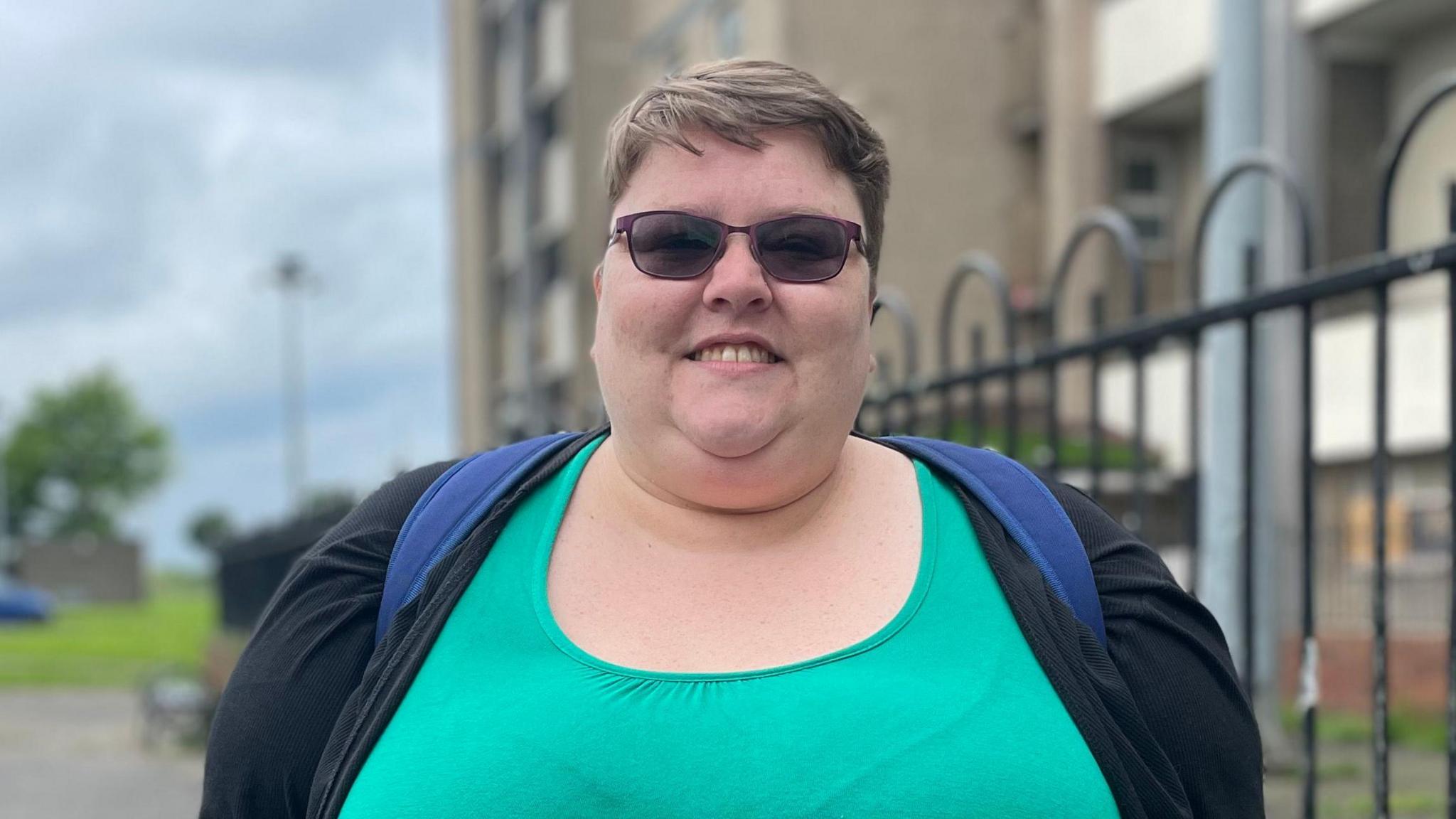Cashless council plan risks 'digital exclusion'

There has been an increase in cashless venues since the coronavirus pandemic
- Published
A council's move towards cashless transactions has been criticised for contributing to "digital exclusion".
Middlesbrough Council closed its cash office earlier this year claiming it had seen a "significant reduction in demand" for the service since the coronavirus pandemic.
Resident Jan McBride has called for reversal after being without a bin for months because the council will not accept cash for new ones.
The 67-year-old, who only uses cash, said: "They've asked me to ask friends or family to do it for me, but I'm entitled to pay for my own bin. They're taking my independence away from me."
She explained: "The council is signed up to a charter that says elderly people should be included, but I'm not included.
"I'm having to jump through hoops just to get a bin, but it's the legal currency of this country I want to use."
'Life getting smaller'
Mrs McBride prefers to budget with cash but said life was getting "much more difficult" for those who do not want to carry out digital transactions.
She said she has left her choir and can no longer attend shows at a local venue because, in both situations, payments can only be made digitally.
"My life is getting smaller at a time when everyone's encouraging people my age to stay in contact and get out and about and be socially able," she said.
"I'm being restricted, and just because I want to pay with cash."
A council spokesman said there had been a significant shift in the way people pay for services in recent years.
"The trend is overwhelmingly towards electronic and online payments," he added.
"This approach is more efficient, helps to reduce costs and offers increased protection against loss and fraud."
He said arrangements for cash payments can still be made in "exceptional circumstances" at PayPoint locations or post offices and that they will reach out to Mrs McBride in an effort to resolve her issue.
Cashless 'divide'
Professor Pamela Briggs, chair in applied psychology at Northumbria University and co-director of the UK's Centre for Digital Citizens, said councils should think more about the potential impact of refusing cash.
"Councils tend to think more inclusively," she said.
"They will send out leaflets offering a whole range of language services and they think about disability too.
"It's interesting that councils are not thinking about cash in this same sort of way, that there's some kind of divide that comes with the cashless society."
Professor Briggs said Mrs McBride's case was unusual as many people adapted their habits after "life changed overnight" as a result of the coronavirus pandemic, when cashless transactions were widely encouraged as a safety measure.
The Middlesbrough woman's life will inevitably be smaller as a result of sticking to cash, she added.
Follow BBC Tees on X (formerly Twitter), external, Facebook, external and Instagram, external. Send your story ideas to northeastandcumbria@bbc.co.uk.
Related topics
More stories from the BBC
- Published6 June 2019

- Published31 May 2024

- Published30 March 2022
